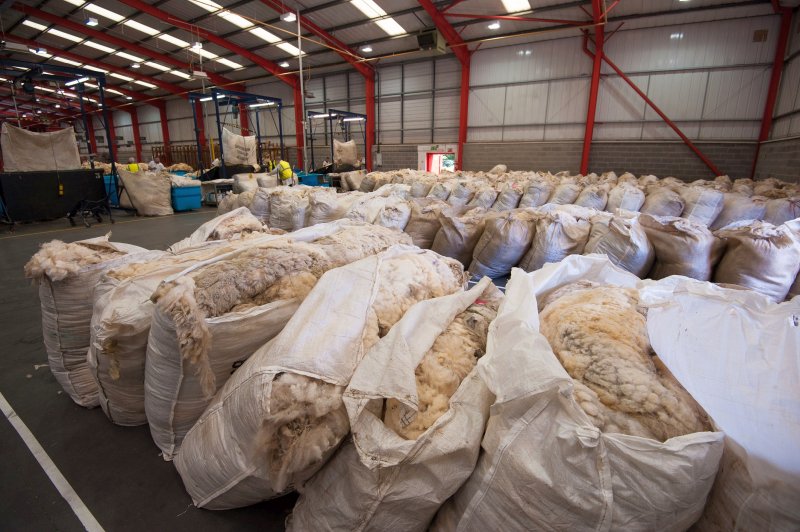British Wool reports 22% price surge amid fierce buyer competition

British Wool has reported its strongest sale in a decade, with prices rising at a pace not seen since the early 2010s as international demand for quality cross-bred wool outstrips supply.
At its latest auction on 7 October, the co-operative recorded an average sale price of £1.18 per kg, compared with last season’s average of £1.00. Prices were 14.2% higher than the mid-September sale, and over the past month values have climbed 22.5%.
Intense competition came from UK, European and Chinese-focused buyers, all eager to secure supplies. Carpet-grade wool traded nearly 20% higher by the end of the catalogue, underlining the strength of demand.
The recovery also reflects growing interest from global textile and carpet manufacturers seeking natural, sustainable fibres to meet consumer expectations.
The surge mirrors similar rises in New Zealand, where sales have also been buoyed by strong international interest. Andrew Hogley, chief executive of British Wool, said: “Following some very positive conversations with the trade, our sales team is confident the strong demand will continue throughout the selling season.
"Sales in New Zealand over the last few weeks have also been very competitive with global market demand for quality cross-bred wools outstripping supply.”
This year’s clip has also benefited from a dry spring and summer, producing whiter fleeces and a higher proportion of wool graded as No. 1 quality.
“Test results for new season wool continue to be significantly better than last year for colour, and British Wool continues to produce a greater proportion of No. 1 grades in the core types,” Mr Hogley said.
Although the organisation has seen a strong flow of wool from new and returning members, volumes are still running 2–3% below last year. Improved prices in 2024 have, however, encouraged farmers who had previously held back their clip, or used it on-farm, to present it for sale.
As a co-operative owned by around 30,000 UK sheep farmers, British Wool urged members to take advantage of the stronger market.
“With prices having shown a further improvement over recent weeks, we encourage any members who still have wool on farm to send it in before the winter,” said Mr Hogley.
“By collectively marketing the clip we can continue to promote British wool and drive demand to deliver improved prices for British wool.”








